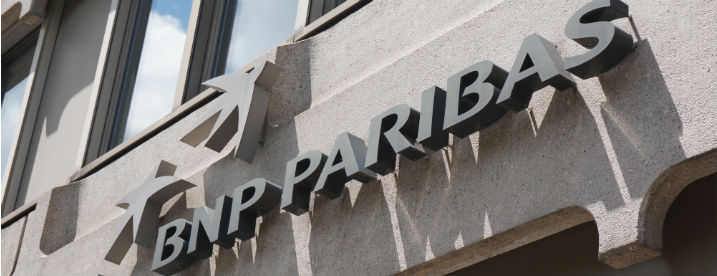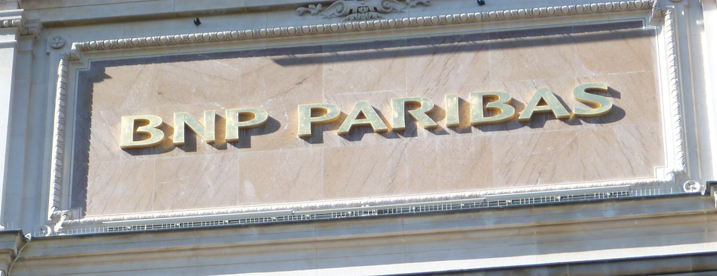By Grace Zhao, July 2, 2014

A couple weeks ago, we wrote a blog post hoping that discipline would go further up the BNP food chain. Unfortunately, the U.S.-BNP Paribas settlement still ineffectively punishes the French bank.
France’s BNP Paribas has agreed to pay a historically large fine of $9 billion for violating sanctions on Sudan, Iran, and Cuba. At face value, this seems to be a big deal. After all, no bank has ever been fined so much for similar crimes.
Yet yesterday, shares in BNP Paribas rose 4 percent, even after the bank pled guilty to a criminal charge. Moreover, no single person within the bank has been charged specifically with any crimes, allowing those who abused executive power to slip away relatively unnoticed. BNP did fire a few employees. Some left on their own. Others faced demotions and pay cuts, small atonements for the billions of dollars that the bank illegally transferred.
By E.J. Fagan, June 13, 2014

A few weeks ago, we wrote on this blog that New York Regulator Benjamin Lawsky was demanding that top executives at BNP Paribas be fired as part of their settlement deal for violating U.S. sanctions and money laundering rules during settlement negotiations. Today, The Wall Street Journal reported that Lawsky was successful:
BNP Paribas has tentatively agreed to oust a senior adviser at the French bank at the behest of New York’s top financial regulator as part of a proposed settlement of BNP’s alleged violations of U.S. sanctions, according to people familiar with the matter.
Benjamin M. Lawsky, who runs New York’s Department of Financial Services, requested the bank remove Vivien Lévy-Garboua, the people said. Mr. Lévy-Garboua has served as head of compliance and internal controls for BNP in North America and currently acts as an adviser to senior bank officials.
It is pretty typical for the bank’s chief compliance officer to be fired after a scandal like this. News reports have the eventual total at ‘at least a dozen’ executives, so we’ll see if the discipline goes farther up the food chain. BNP has announced the symbolic early retirement of Chief Operating Officer Georges Chodron de Courcel, who was expected to leave at the end of the year. No one should mistake that for real discipline, however.
By E.J. Fagan, June 2, 2014

Reuters has the story. Settlement negotiations are under way between New York and Federal law enforcement and BNP Paribas, to resolve allegations into whether or not the bank evaded U.S. sanctions. Reports have been circulating for a few days now that BNP Paribas could see financial penalties of up to $10 billion and may plead guilty to violating U.S. law.
Benjamin Lawsky, the Superintendent of Financial Services for New York State, is negotiating on behalf of New York. Previous money laundering settlements have resulted in much more modest fines, and little change at the senior level of of the bank’s management. Regulators may have expected banks to choose to fire senior management on their own following billion-dollar settlements in previous cases, but that did not materialize. This time, Lawsky does not want to leave it to chance:
“The details of settlement talks show how regulators are now demanding that bank employees be held personally accountable for their activities.
Lawsky, a former federal prosecutor who has extracted large penalties from other banks such as Standard Chartered Plc and Credit Suisse Group AG, has said he is making personal accountability a focus in his probes.
“If a bank commits a criminal act or if a bank commits serious regulatory violations, someone within that bank did it. The corporation is an inanimate thing,” Lawsky said last month.”
We’ll be monitoring this situation, but here’s a thought: will this rationale be extended to criminal prosecutions? Will Lawsky stop at requiring banks to fire individuals who committed crimes, or will they actually be prosecuted?
By Brian LeBlanc, May 29, 2014

According to data provided by the U.S. Treasury, approximately $13.5 billion in bank deposits held by Russians left U.S. banks in March:
What happened between February and March? On February 26th, Russian military forces began to invade Crimea, setting off the international crisis in the region. Within a few weeks, Western nations imposed sanctions on some Russian individuals.



